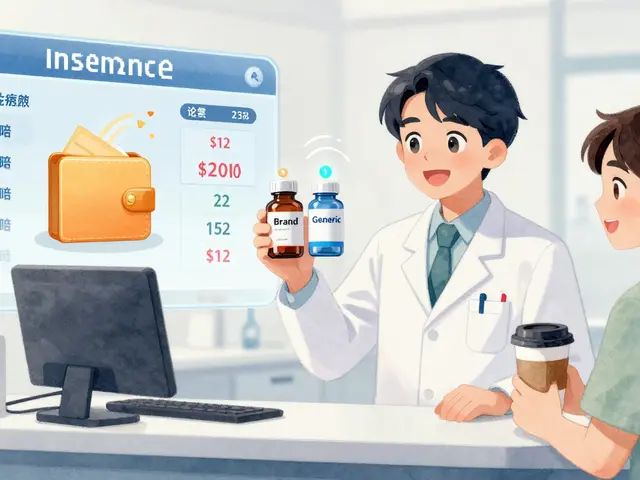Disulfiram alternatives: safer options for alcohol dependence
Disulfiram (Antabuse) blocks alcohol metabolism to create unpleasant effects if you drink. That aversive approach helps some people, but it’s not for everyone. If you can’t tolerate disulfiram or it doesn’t fit your life, there are several effective alternatives that reduce craving, ease withdrawal, or support long-term abstinence.
Medication options worth knowing
Naltrexone — Works by blocking opioid receptors and cutting alcohol reward. You can take it as a daily pill (usually 50 mg) or a monthly injection (Vivitrol, 380 mg). Pros: reduces heavy drinking and cravings. Cons: checks needed for liver disease; never use if you’re on opioids (it blocks their effect) or likely to need opioid painkillers.
Acamprosate — Helps restore brain chemistry after you stop drinking and lowers the urge to relapse. Typical dose is 666 mg three times a day. Pros: safe for people with liver problems (dose changes needed for kidney issues). Cons: needs multiple daily pills and may cause diarrhea or mild GI upset for some.
Topiramate and Gabapentin — Both are used off-label to reduce drinking and curb cravings. Topiramate can be very effective but may cause cognitive side effects (word-finding, memory). Gabapentin is often used for withdrawal symptoms and sleep problems; it’s generally well tolerated but carries some sedation risk.
Baclofen — A muscle relaxant sometimes used for alcohol dependence, especially when anxiety or muscle tension is part of the problem. Evidence is mixed, but some people get real benefit. Side effects include drowsiness and dizziness; dosing must be gradual.
Therapy, support, and practical steps
Medications work best with psychosocial support. Cognitive-behavioral therapy (CBT), motivational interviewing, mutual-aid groups (AA, SMART Recovery) and contingency management improve outcomes. Think of meds as a tool—therapy teaches skills and builds a relapse plan.
Quick checklist for talking to your clinician: 1) Describe drinking pattern and past treatments. 2) Ask about liver and kidney testing before starting meds. 3) Mention opioid use or future surgery needs (important for naltrexone). 4) Discuss pregnancy or breastfeeding. 5) Plan follow-up and monitoring for side effects.
If disulfiram didn’t suit you, you’ve got options. Naltrexone and acamprosate are first-line choices backed by strong evidence; topiramate, gabapentin, and baclofen are alternatives in specific cases. Match the drug to your health profile and combine it with therapy for the best chance at lasting change. Talk with a doctor who treats addiction to make a safe plan tailored to you.

Top Alternatives to Antabuse for Alcohol Addiction: Your Guide to Making Informed Choices
Exploring treatment options for alcohol addiction often extends beyond Antabuse. This article delves into various alternatives like Temposil, Campral, and Naltrexone, each offering unique advantages and drawbacks. It aims to provide an insight into their mechanisms, benefits, and limitations to help individuals make informed decisions. The discussion is tailored for those seeking comprehensive understandings of their choices in battling alcohol addiction.




